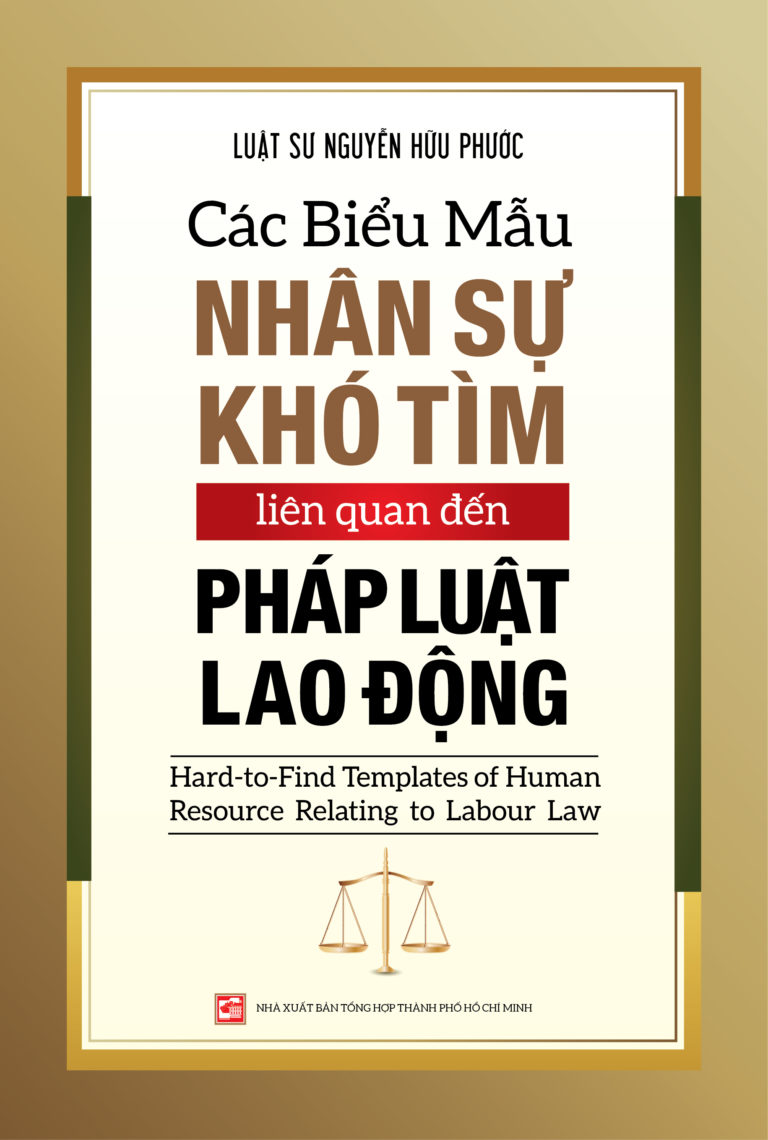BUSINESS DEBT COLLECTION: LEARN ABOUT THE LEGAL PROCESS
In the production and business process of an enterprise, bad debts are inevitable. Accordingly, the balance between profits and bad debts is always something that businesses are concerned about. Effective debt management will contribute significantly to the success of the business. Previously, debt collection was a form of service business and a conditional business investment. Based on this available service industry, many businesses have proactively contacted companies specialising in providing debt collection services to reduce the burden and restore their business’s finances. However, can businesses still apply this method?
Reality shows that corporate debt collection based on legal regulations still has many problems and shortcomings. Therefore, the article with the topic “Business Debt Collect: Learn about the legal process” will help readers, especially businesses, to access and find solutions suitable to the practical situation of each business to ensure full and quick debt recovery.
Debt collection business – This form is prohibited by law
Normally, when thinking about “Business Debt Collect: Learn about the legal process”, businesses always want to choose a quick solution but with simple legal procedures, businesses do not need to do it themselves, they only monitor and track debt collection progress. Therefore, the form of debt collection business developed explosively and became the top optimal choice for businesses.
Debt collection is a service industry, accordingly, businesses that want to do debt collection services will have to register their business at the Department of Planning and Investment where the business is headquartered. Businesses providing debt collection services will carry out debt collection measures against the debtor at the request of the creditor. However, since 01 January 2021, this service industry has been banned according to the provisions of Article 6 of the Law on Investment 2020. Specifically, the contract to provide debt collection services signed before 01 January 2021 will expire from 01 January 2021; the parties to the contract may carry out activities to liquidate the contract to provide debt collection services in accordance with the provisions of civil law and other relevant laws.[1]
Thus, because the debt collection service industry has been banned, it is illegal for any business to do or use this service.
Some legal business debt collection options and implementation procedures
Based on the business cooperation situation, each business’ debt collection also has differences and there cannot be a general formula that applies to all businesses. “Business Debt Collect: Learn about the legal process” not only explores each legal aspect, but also outlines the characteristics of each debt collection option for businesses to consider and choose appropriately.
Through debt collection practices of businesses, we provide the following debt collection options for businesses to consider and apply appropriate measures:
- Texting, calling and discussing payment reminders
This is considered the “lightest” option for cases where the debt is not much, the case is simple, or the debtor is a close client or partner of the business. In some cases, the debtor does not intend not to pay, but rather forgets or confuses the payment date. This reminder is considered a goodwill action to request the debtor to pay the business soon.
- Negotiation
Before entering into the option that many readers think of when approaching the topic “Business Debt Collect: Learn about the legal process” is to sue, businesses can also consider conducting step-by-step negotiations with the debtor to make their demands clearer and stronger. Accordingly, the negotiation process will be shown through each stage that businesses can consider implementing as follows:
- Reminder period: Before negotiating, businesses can use communication methods such as email, text messages, and phone calls to remind them that their debt is nearing the deadline for payment. In addition, businesses can ask about the specific time the debtor can pay, set up a meeting date to find out the reason in case the debt cannot be paid, and find other debt collection options (if any).
- Sending a letter requesting debt payment: Along with contacting via email, text message, or phone, businesses can send a letter requesting debt payment to the debtor. A payment request letter helps businesses and debtors capture necessary information about debt, payment term, payment methods, etc. A written request for payment is an appropriate method to express both a soft and tough attitude, is also a basis for businesses to initiate lawsuits, determine the statute of limitations for lawsuits and create advantages in providing documents and evidence at competent state agencies.
- Meeting period to discuss payment requests: If the debtor still has not made any move to pay after the reminder, the business proactively arranges a meeting with the debtor to discuss issues related to the debt. During the discussion process, businesses should show goodwill and trust in the debtor. However, a stronger warning can be issued if the debtor still refuses to compromise.
If the debtor continues to fail, the business can initiate strict warning measures, giving the debtor adverse consequences if they do not pay. Based on contractual agreements and civil and commercial legal regulations, businesses are allowed to request the party obligated to pay to properly perform their obligations. This time, the business should ask the debtor to commit to paying the debt in writing.
Businesses should note that any negotiations should be made in writing with confirmation signatures of both parties. At the same time, during the negotiation process, if there is a change in content other than the previous agreement or transaction such as payment method, payment time, etc., it also needs to be recorded and documented to ensure the legal validity of these agreements.
- Initiating a lawsuit in a competent court or arbitration center
One of the indispensable options for the topic “Business Debt Collect: Learn about the legal process” and is considered the final level that businesses are forced to take to collect debt, which is to sue in competent courts or arbitration centers according to the provisions of Vietnamese law. Implementation time depends on each specific case and can last from 3 to 12 months or more.
Businesses can refer to the lawsuit process at Court to request the debtor to pay corporate debts as follows:
Step 1: Submitting a lawsuit
Business needs to submit a petition along with documents and evidence to the Court with jurisdiction to resolve the case by the following methods: (i) Submitting directly to the Court; (ii) Sending it to the Court by postal service; (iii) Submitting online electronically via the Court’s Electronic Information Portal (if any).[2] In this step, businesses need to prepare all the evidence to sue such as: sales contract, debt confirmation minutes, etc and determine the exact amount of debt that needs to be paid.
Step 2: Amending and supplementing the petition
After receiving the petition and accompanying documents and evidence, the Court will assign a Judge to consider the petition. In case the Court finds that the business’s petition is not appropriate, the Court will issue a notice requesting amendments and supplements to the petition.
Business needs to pay attention to amending and supplementing the petition according to the deadline set by the Court. If it cannot be supplemented on time, the business needs to send a written request to the Court to extend the deadline. If the business does not amend or supplement as required or exceeds the prescribed time limit, the Court may return the business’s petition.
Step 3: Accepting the case [3]
If the Court finds that the business’s petition is appropriate and the case falls under the Court’s jurisdiction, the Court will immediately notify the business so that they can go to the Court to complete the procedures to pay the court fee in advance, in case they do not belong to an exempt school or do not have to pay court fee advances. Within 07 days from the date of receiving the Court’s notice of payment of court fee advance, the business must pay the court fee advance and submit to the Court a receipt for the court fee advance. The judge accepts the case when the business submits to the Court a receipt for the advance payment of court fees.
Step 4: Preparing for trial
According to the law, the time limit for preparing for trial of all types of cases (except for cases tried according to summary procedures or cases with foreign elements) is from 01 month to 04 months from the date of accepting the case.[4]
During the trial preparation stage, the Judge can request additional documents and evidence, issue decisions to suspend the consideration of applications, request appraisals, and asset valuations… If there are no results of appraisal or valuation of assets, the time to prepare for considering the request can be extended but not to exceed 01 month.
During the period of preparation for the first instance trial of the case, the Court conducts conciliation so that the litigants can agree on the settlement of the case, except for cases that are not conciliated or can not be conciliated or cases that are resolved according to summary procedures. If conciliation is successful, a decision will be issued to recognise the parties’s agreement. If conciliation fails, the case will be brought to trial.
Step 5: Bringing the case to first instance trial [5]
Business should note that if the business has been duly summoned by the Court for the second time but is absent without a legitimate reason, the Court will conduct a first instance trial in the business’s absence.
Step 6: Appealing the first instance judgment
In case the business does not agree with the decision of the First Instance Judgment, the business has the right to appeal the First Instance Judgment to the Court of Appeal for resolution according to the appellate procedure. The time limit for appeal is 15 days from the date of judgment, if the business is present at the trial. If absent from court, it will be counted from the time the business receives the first instance judgment.
- The enforcement of judgment
Court judgments and decisions have legal effect and must be respected by agencies, organisations and all citizens. However, not all debtors voluntarily pay money to business. Therefore, business has the right to request the competent enforcement agency to enforce that judgment/decision.
Within 5 years from the date the judgment or decision takes legal effect, business can themselves or authorise others to make a request for judgment enforcement and send it to the district-level judgment enforcement agency where the court of first instance is to request judgment enforcement.[6] Accordingly, business needs to prepare a request for judgment enforcement accompanied by the judgment and decision requested to be enforced and other relevant documents. Regarding the content of the request for judgment enforcement, the business needs to provide information about the debtor’s assets or conditions for judgment enforcement so that the judgment enforcement agency can conveniently verify it.
In addition, business has the right to request civil judgment enforcement agencies to apply measures to ensure judgment enforcement to avoid cases where the debtor disperses assets and is unable to repay debt according to the judgment such as asset freeze measures, temporary exit measures for the debtor’s legal representative, etc.
The enforcement agency will apply enforcement measures to recover money for business such as measures to distrain assets, deduct money from the account, deduct from the debtor’s income, collect money from the debtor’s business activities, etc.
- Procedures for requesting business bankruptcy
Business bankruptcy requests are considered a notable figure in “Business Debt Collect: Learn about the legal process”. Because, since the debt collection service business was officially banned, the number of businesses being sued by individuals and organisations requesting to open bankruptcy procedures has gradually increased. Bankruptcy is a situation in which an business or cooperative loses its ability to pay and is declared bankrupt by a decision by the Court.[7] Accordingly, unsecured creditors and partially secured creditors have the right to submit a request to open bankruptcy proceedings after the 3-month period expires from the date the debt becomes due but the business or cooperative fails to fulfill its payment obligation.[8] When business chooses to carry out this procedure, please note that, the debtor’s assets will be given priority for payment in the order of bankruptcy costs, salary debt, severance payment, insurance payments to employees, secured debts, and unsecured debts.
The above is an overview of Business Debt Collect: Learn about the legal process. If you have difficulties in finding a Law Firm to advise and support in the relevant legal field, please contact us. Phuoc & Partners is a professional consulting firm established in Vietnam and currently has nearly 100 members working in three offices in Ho Chi Minh City, Hanoi and Danang. Phuoc & Partners is also rated as one of the leading consulting firms specialising in business law in Vietnam that has leading practice areas in the legal market such as Labour and Employment, Taxation, Merger and acquisition, Litigation. We are confident in providing customers with optimal and effective service.
[1] Article 77.5 Law on Investment 2020.
[2] Article 189.1 Civil Procedure Code 2015.
[3] Article 195 Civil Procedure Code 2015.
[4] Article 203 Civil Procedure Code 2015.
[5] Article 222 Civil Procedure Code 2015.
[6] Article 30 Law on Enforcement of Civil Judgment 2008.
[7] Article 4.2 Law on bankruptcy 2014.
[8] Article 5.1 Law on bankruptcy 2014.










